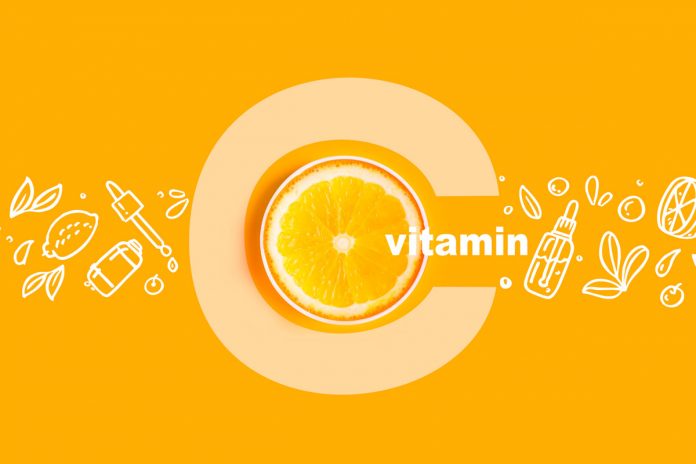Liposomal Vitamin C Healthy Drops
Additional viewing options
Categories
-
Cosmetics
-
Health
-
Animal's Health
-
General Wellness
-
Healthy Guts
-
-
Bones and Joints
-
Boswellia
-
Chondroitin
-
Collagen
-
Glucosamine
-
Healthy Joints Supplements
-
Hyaluronic Acid
-
MSM
-
-
Digestion and Healthy GI
-
Butyric Acid
-
Digestive Enzymes
-
-
Essential Oils
-
Fish Oil / Omega-3
-
Healthy Sleep
-
Cortisol Control
-
Melatonin
-
-
Heart and Cardiovascular System
-
Immunity
-
Liver
-
Detox
-
Milk Thistle
-
NAC N-Acetyl-Cysteine
-
-
MCT Oil
-
Men
-
Multivitamin for Men
-
Sexual Health
-
Maca
-
Prostate Supplements
-
Saw Palmetto
-
Tribulus
-
-
-
Mind and Focus
-
Brain Health
-
Nootropic Supplements
-
-
Minerals
-
Boron
-
Calcium
-
Chromium
-
Iodine
-
Iron
-
Magnesium
-
Multimineral
-
Potassium
-
Selenium
-
Silicon
-
Zinc
-
-
Pro-Health Supplements
-
ALA - Alpha Lipoic Acid
-
Coenzyme Q10
-
Glutathione
-
PQQ
-
-
Probiotics
-
Acidophilus
-
Bifidobacterium
-
Bifidus
-
Lactobacillus
-
Multi-Strain Probiotic
-
Prebiotics
-
Prenatal Probiotics
-
Probiotic for Children
-
Saccharomyces Boulardii
-
-
Senior
-
Heart and Cardiovascular System
-
Multivitamin for Seniors
-
Prostate Supplements
-
-
Superfoods
-
Urinary Tract
-
Vitamins
-
Multivitamin
-
Vitamin A and Beta-Carotene
-
Vitamin C
-
Vitamin D
-
Vitamin E
-
Vitamin K
-
Vitamins B
-
-
Vitamins for hair
-
Vitamins for nails
-
Vitamins for the skin
-
Weight Management
-
Apetite Control
-
Endocrine System
-
Cortisol
-
Glucose - Insuline
-
Thyroid
-
-
Fiber
-
Water Loss
-
-
Woman
-
Digestion and Healthy Guts Supplements
-
Menopause Supplements
-
Multivitamin for Women
-
Progesterone
-
-
-
Healthy Diet
-
Bars
-
Energy Bars
-
Full Boxes
-
Protein Bars
-
-
Cooking Oils
-
Gluten Free
-
GMO Free
-
Healthy Snacks
-
Healthy Chips
-
Healthy Pancakes
-
Nut Butters
-
-
Lactose Free
-
Sauces and Dips
-
Sugar Substitutes
-
Erythritol
-
Stevia
-
Xylitol
-
-
Vegetarian / Vegan
-
-
Herbs
-
Adaptogens
-
Adaptogen Complex
-
Ashwagandha
-
Bacopa Monnieri
-
Ginkgo Biloba
-
Ginseng
-
Gotu Kola
-
Rhodiola Rosea
-
-
Algae
-
Chlorella
-
Kelp
-
Spirulina
-
-
Antioxidant
-
Curcumin and Piperine
-
Green Tea
-
Lutein
-
Quercetin and Bromelain
-
Reishi
-
Resveratrol
-
-
CBD
-
Extracts
-
Artichoke Extract
-
Broccoli Seed Extract
-
Cat's Claw
-
Cinnamon
-
Curcumin
-
Extract Complex
-
Garlic Extract
-
Ginger Extract
-
Moringa
-
Olive Leaf
-
Oregano Extract
-
Pau d'Arco
-
Piperine
-
-
Mushrooms
-
Astragalus
-
Cordyceps
-
Lion's Mane
-
Mushroom Complex
-
Shiitake
-
-
-
Mother and Baby
-
Child
-
Focus Support for Children
-
Multivitamin for Children
-
Vitamin D for Children
-
-
Multivitamin for Mom
-
Postnatal
-
Prenatal
-
Folic Acid
-
Omega 3
-
Prenatal Multivitamins
-
-
-
Sport
-
Amino Acids
-
BCAA
-
BCAA Blends
-
EAA
-
L-Glutamine
-
Taurine
-
-
Carbohydrates
-
Complex Carbs
-
Dextrose
-
Vitargo
-
-
Creatine
-
Buffered Creatine
-
Creatine Blends
-
Creatine HCl
-
Creatine Malate
-
Creatine Monohydrate
-
Creatine Stacks
-
-
Electrolites
-
Energy Gels
-
Isotonic Drinks
-
-
Fat Burners
-
Fat Burners for Advanced
-
Fat Burners for Beginners
-
L-Carnitine
-
Thermogenic
-
-
Gainer
-
Less than 50% Protein
-
More than 50% Protein
-
-
HMB
-
NSF Certified for Sport
-
Post-Workout Supplements
-
Pre-Workout Supplements
-
Beta-Alanine
-
Nitric Oxide Boosters
-
Citrulline
-
L-Arginine
-
-
Pre-Workout Stimulants
-
Stimulant Free
-
-
Protein Supplements
-
Beef Protein
-
Casein - Nighttime Protein
-
Hydrolyzed (WPH)
-
Isolates (WPI)
-
Protein Blends
-
Vegan Protein
-
WPC
-
-
Training Accessories
-
Pill Organizers
-
Shakers
-
-
-
Your Goal
-
Endurance
-
Gym
-
Healthy Joints
-
Muscle Mass Building
-
Triathlon / Cycling / Running / Swimming
-
Weight Loss
-
-
New products
-
Specials
-
Featured Products
-
Short expiration dates
New Products
SEEKING HEALTH Optimal Liposomal Vitamin C Plus (Liquid Vitamin C) 150ml

Description
see delivery costs Free delivery option
only for shipment in Poland Available delivery forms for viewing the product:Courier InPost - 2,59 €
Paczkomaty24/7 - 2,61 €
Poczta Polska (The Polish Post) POCZTEX48 with collection at a point - 1,87 €
Poczta Polska (The Polish Post) POCZTEX48 - 2,17 €
Courier DPD - 2,72 €
ORLEN Paczka - 1,52 €
Registered mail PL - 3,40 €
Priority registered mail - 3,98 €
Self- pickup - 0,00 €
FREE GIFT TO EVERY ORDER

LOYALTY PROGRAM
exchange
points
for PLN!
For this product you will receive: 134
points
- DescriptionDescription
- Dosage
- Ingredients Table
- About the brand
- Reviews (0)
- Nutritional information
- Articles
Optimal Liposomal Vitamin C Plus from Seeking Health provides 1000mg of vitamin C along with bioflavonoids and rosehip extract in a liquid liposomal form. Vitamin C is needed by the body to perform the immune system, full and skin, and to recycle glutathione. In the body, as an antioxidant, vitamin C can help a chronic cell against damage caused by free radicals. Environmental exposure to free radicals occurs daily, from cigarette smoke, air and ultraviolet light from the sun. Free radicals are also produced as by-products of normal metabolic processes. In addition, the body needs vitamin C to produce collagen, the proteins needed for healthy skin and the skin required for healing.
- A high dose antioxidant vitamin C (from Scotland)
- With wild rose extract and bioflavonoid support
- It can help maintain a healthy immune system
- It can help maintain healthy eyes and skin
This formula contains a synergistic blend of rose fruit extract with additional bioflavonoids: quercetin and hesperidin. Bioflavonoids (or simply flavonoids) are a type of compound synthesized by plants that may be responsible for the potentially potential health benefits of a plant-rich diet. Relationships with this family can help maintain a healthy inflammatory response, healthier cellular and cellular signaling / communication. The rose is full of beneficial contents: vitamin C, carotenoids, flavonoids and falling phenolic. These beneficial compounds found in rose hips and other sources of vitamin C in whole food can support the antioxidant effect of vitamin C.
Optimal liposomal vitamin C Plus uses a unique method of delivering liposomes to support optimal absorption of our high yield vitamin C. Liposome into small phospholipid vesicles that mimics the action of a cell cell. Liposomes may be better absorbed through cell membranes in a way that is not intended for ordinary water-soluble or fat-soluble nutrients. Our liposomes are made of non-hydrogenated phospholipids derived from GMO-free sunflower oil. This is a soy free product.
Dosage
Shake slightly before each use. Use 1 teaspoon on an empty stomach or between meals. It can also mix in 1 oz of water or juice.
Serving Size: 1 teaspoon (5 ml)
Suitable for Vegans and Vegetarians
Ingredients
Container: Liquid 150ml
Serving Size: 1 Teaspoon (5ml)
Servings per Container: 30
Form: Liquid
Ingredients
Content in a portion
in 100 g
% RDA
Vitamin C (as Ascorbic Acid)
1000mg
1667%
Other ingredients
Carbohydrates; Vitamin C (as sodium ascorbate, ascorbic acid); Sodium (as sodium ascorbate); A complex of phosphatidylcholine and phosphatidylethanolamine (from non-genetically modified sunflower oil).
Free from: Dairy, eggs, fish, crustaceans, nuts, peanuts, wheat, soy, gluten, GMO
About the brand
Seeking Health is an American producer of top quality supplements. The manufacturer's assumption is to support the body's resistance, optimize the process of digestion, reduce the toxic impact of the environment and an inadequate diet on our health. Seeking Health believes that prevention is much easier than treatment that is why their supplements are effective, properly tested and do not contain artificial additives.
Nutritional information
Dietary supplement / Food replacement for all-day diet for weight control.
Cannot be used as a substitute or substitute for a varied diet.
The product should not be given to pregnant women or nursing mothers.
Do not exceed the recommended daily allowance.
Keep out of the reach of children.
Best before the end: date on the packaging.
Descriptions are the property of the store www.mass-zone.eu. Copying and distribution of descriptions is prohibited!
In accordance with the Act of 4 February 1994 on Copyright and Related Rights (Journal of Laws of 2006 No. 90, item 631, as amended)
Manufacturer: Seeking Health, LLC 3140 Mercer Ave Bellingham, WA 98225 (800) 547-9812
Reviews
Lack of reviews for this product. Be the first to write a review.
Find out more about the presented product on our blog:
there is no articles
Other products in category





Liposomal Vitamin C Healthy Drops
Source: https://mass-zone.eu/en/seeking-health-optimal-liposomal-vitamin-c-plus-liquid-vitamin-c-150ml-p-2612.html








